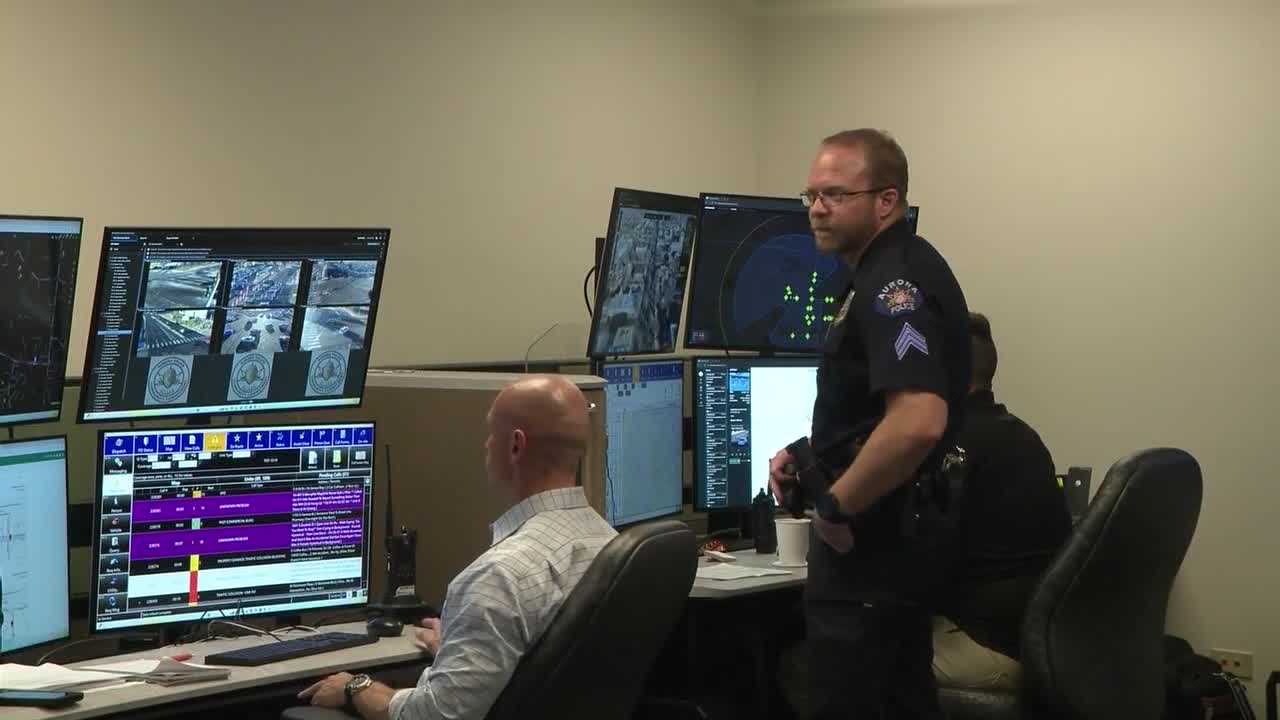The future of policing seems to have arrived in Aurora in something called the Real Time Information Center.
Earlier Wednesday, the license plate number of a Chevy Tahoe associated with a man accused of a nasty crime, was entered into the Aurora Police Department's license plate reader system. Around 3:30 p.m., the system got a hit on the vehicle and the Real Time Information Center team got busy.
Using license plate readers throughout Aurora and the city's street cameras, the team tracked the driver as he zipped through the city. Less than 10 minutes later, an APD officer stopped the driver at W. Colfax Avenue and Lipan Street and found the man they were looking for.
"The person that was in the driver's seat is actually the person with the warrant. So, a good day," said Dillon Schneebeck, a technician at the Real Time Information Center.
That was a good example of how APD says the Real Time Information Center works. License plate readers, city cams, officer body-worn cameras are all fed into this centralized facility at Aurora police headquarters. The final piece of this operation just went online — first responder drones.
Police explained that drones can locate suspects, collect evidence, and show first responders what they are getting into, in real-time, before they arrive. APD has one drone now and expects to have six by the end of March.
"A lot of times these drones can be on scene in less than 90 seconds. So, when you talk about that drone getting sent up, getting eyes on location — where is that suspect? Is there a weapon present?" said APD Deputy Chief Phillip Rathbun.
Aurora police say they already have evidence this high-tech policing is working. They say arrests are up 48% year over year and crime is down 24%. Minus the drones, the Real Time Information Center has been operational for about a year.
"It's been a wild success. Why is that? Because we're getting there faster with better information, more actionable and it's leading to outcomes," said Rathbun said.
He said the first two years of the additional costs associated with the center is being paid for with grants and seized funds.
Denver7 has also covered the privacy concerns of license plate readers and surveillance cameras in the City of Denver. Watch that story below.






